- Home
- About us
- Press Releases
- Projects
- SIIM
- Security Incident Information Management (SIIM) (EN)
- Security Incident Information Management (SIIM) FR
- Security Incident Information Management (SIIM) (ES)
- Security Incident Information Management (SIIM) AR
- SIIM in NGO Security Collaboration
- Toolkit: Evidence that Protects Health Care
- Support for Advocacy
- Mobile Guides and Podcasts
- Mobile guides on security
- Research partnership
- Concept development
- Information
- Country Pages
Cameroon
Violent conflicts in the anglophone Northwest and Southwest regions and in the Far North region of Cameroon have created severe humanitarian needs and mass forced displacement.
Two women kidnapped and raped in Far North region
27 January 2024: Between Gancey town and Kolofata town, Mayo-Sava department, Far North region, two women were kidnapped and raped in their field by armed Boko Haram fighters. They were taken to a health facility after their release. Source: Humanity Purpose. Return to Cameroon home page. more
Previous stories:
Reports
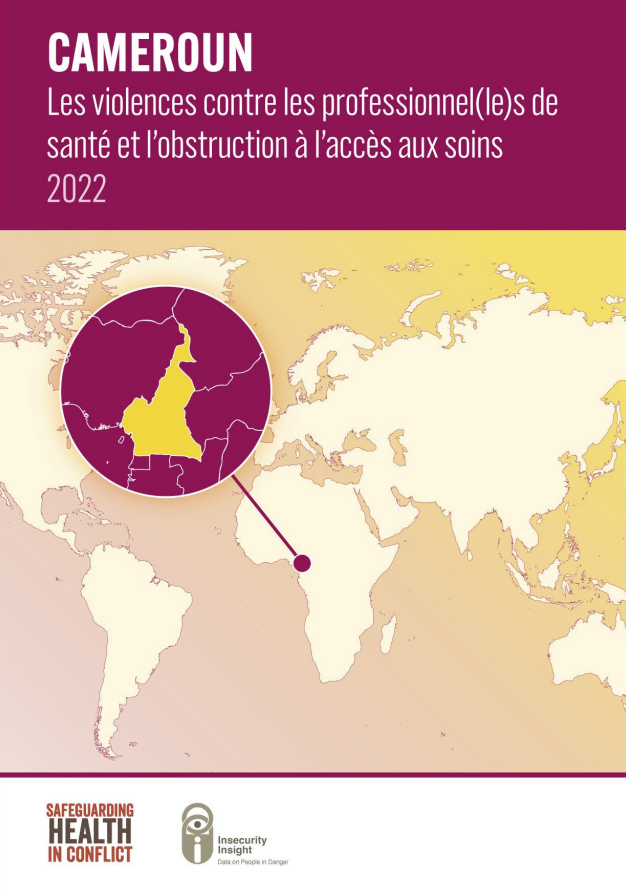
Cameroun
Mai 2023
Fiche d'information 2022
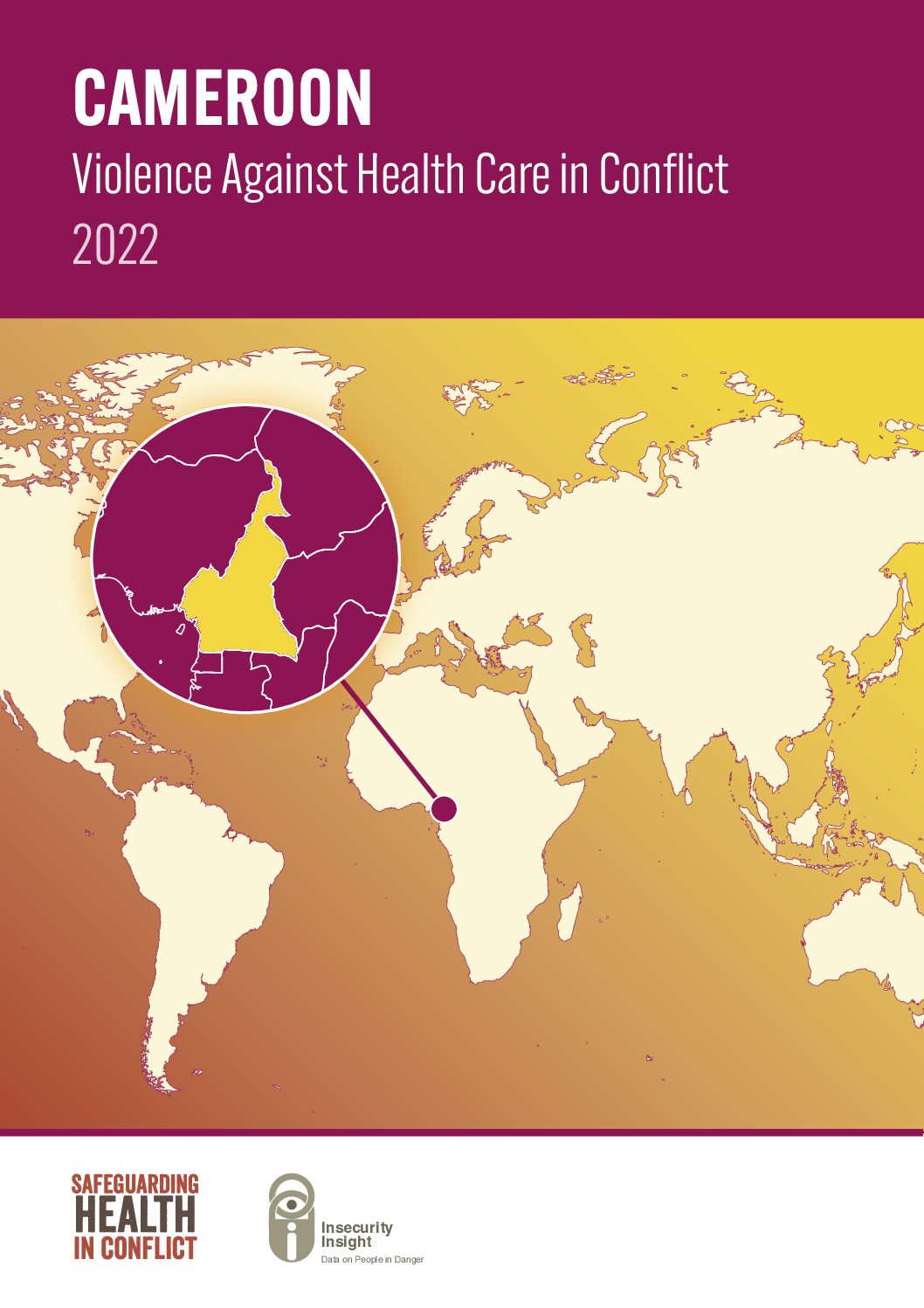
Cameroon
May 2023
SHCC 2022 Factsheet
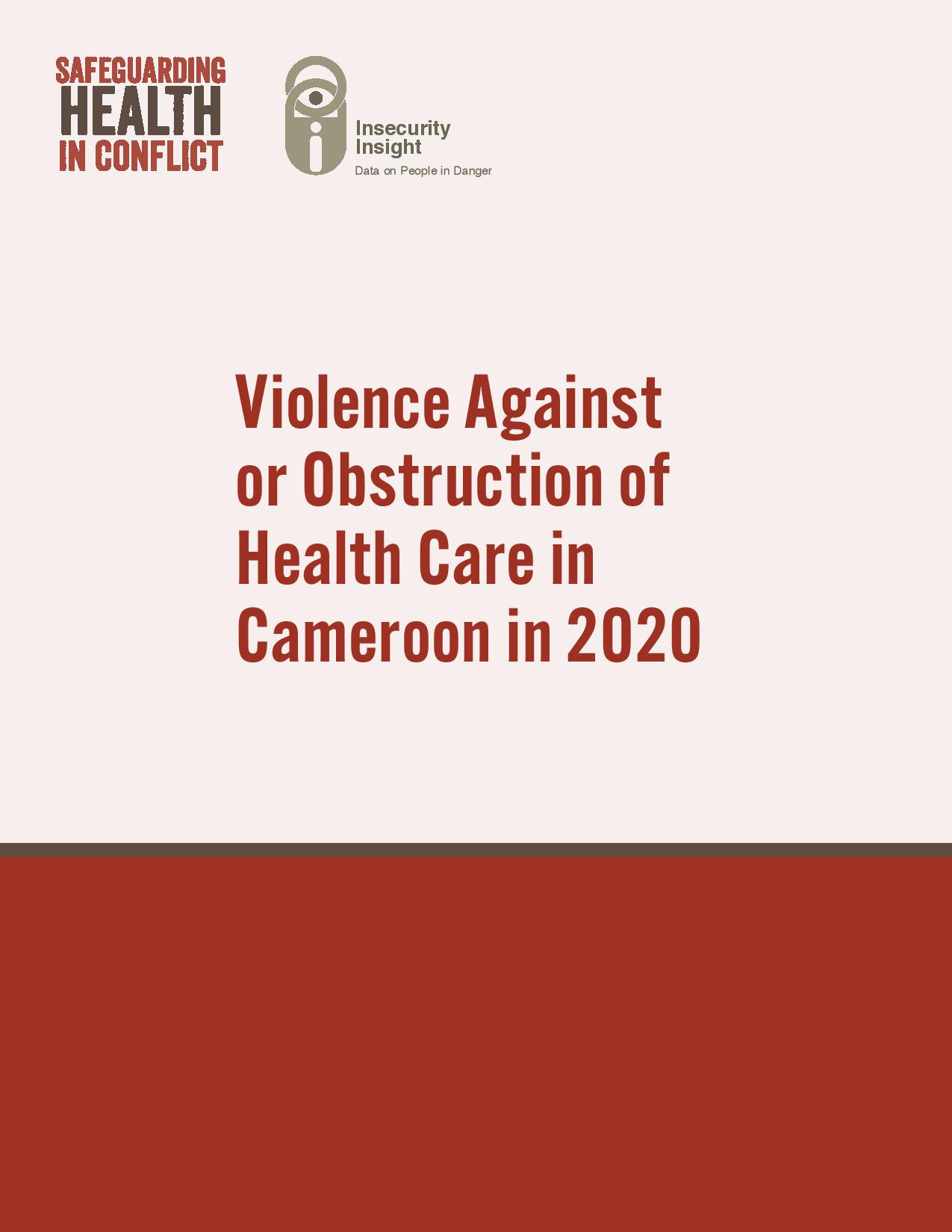
Cameroon
24 May 2021
2020 SHCC Factsheet
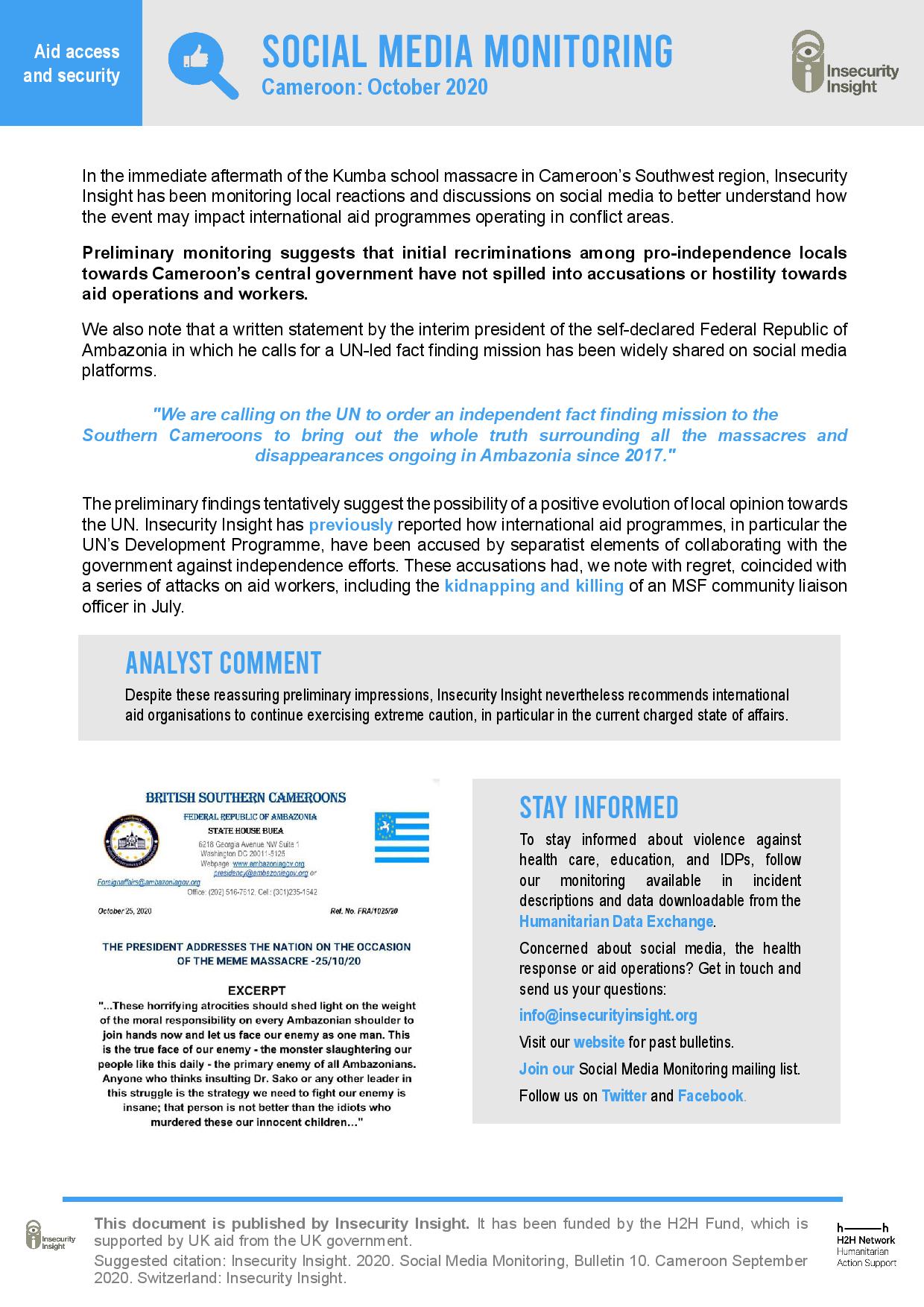
Cameroon
October 2020
Social Media Monitoring
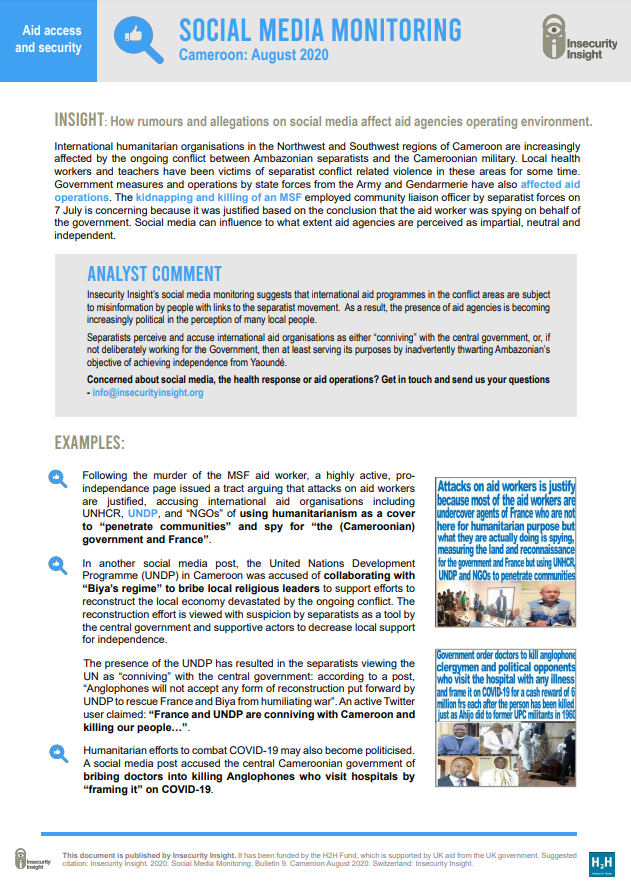
Cameroon
August 2020
Social Media Monitoring
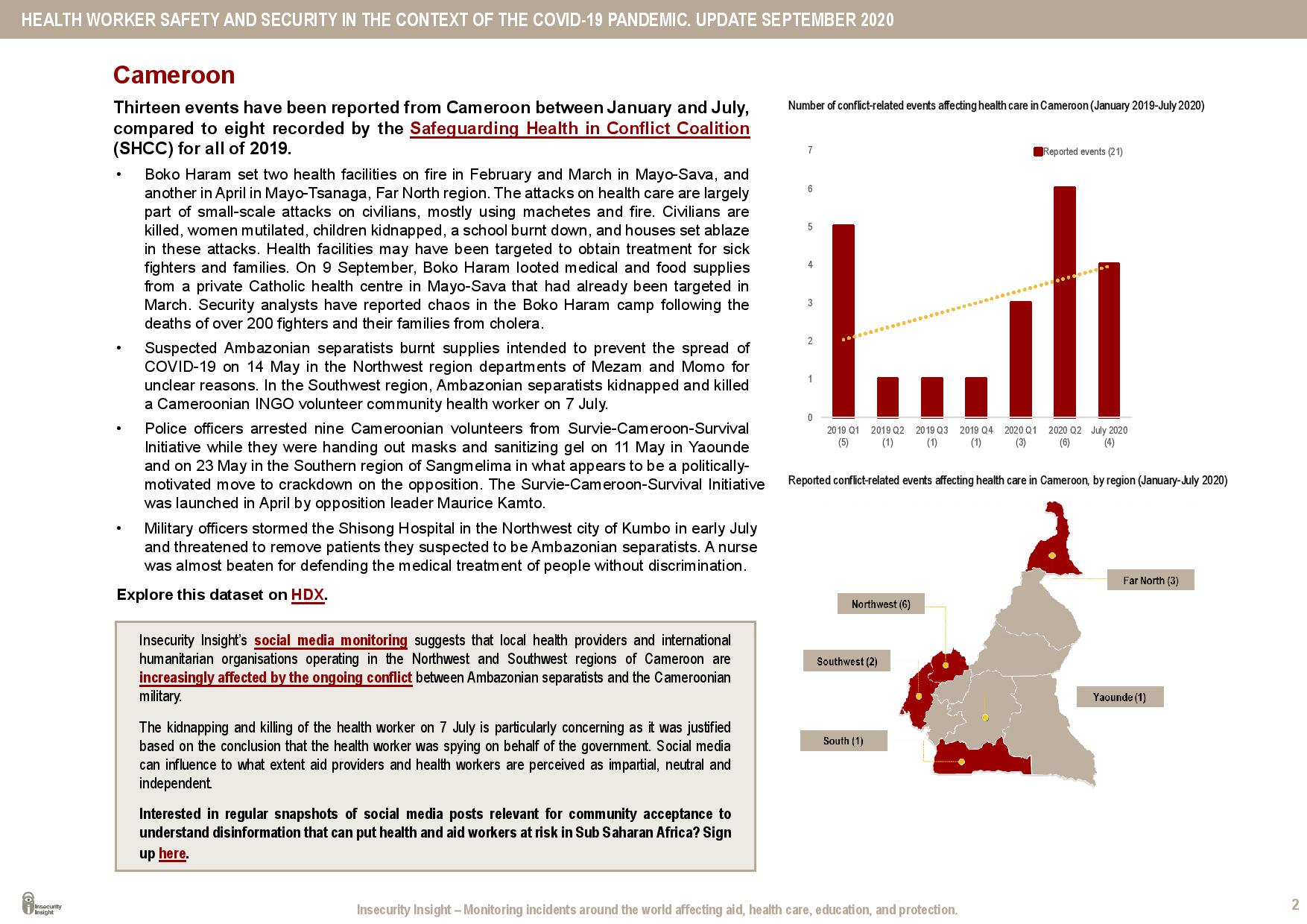
Conflict-related attacks on health care in Cameroon 2020
Insight: Events rose in July.13 events have been reported from Cameroon between January and July, compared to eight recorded by the Safeguarding Health in Conflict Coalition (SHCC) for all of 2019.
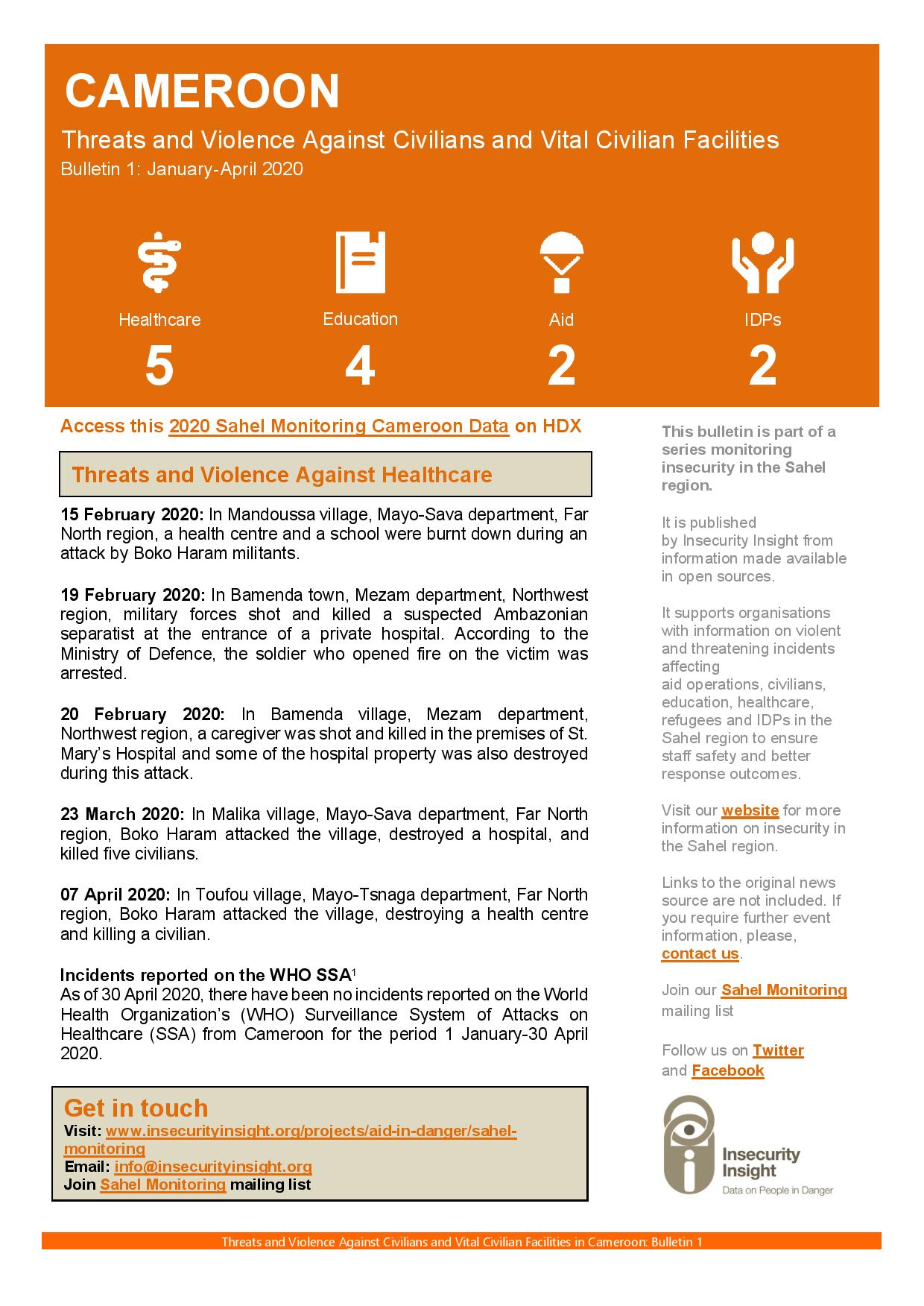
Threats and Violence in Cameroon
Read the full report here >>>
Aid in Danger
Humanitarian access in Cameroon is challenging. International humanitarian organisations in the Anglophone regions are increasingly affected by ongoing conflict. Insecurity has impeded access for aid workers working in the area, who are often subject to misinformation by people linked to the separatist movement. Aid programmes are disrupted or temporarily suspended due to insecurity.
In the Northwest and Southwest regions, aid workers have been kidnapped, sometimes in groups. There have been cases of kidnapped aid workers being killed in captivity. Aid convoys are also ambushed by armed groups. Data
Health Care
Insecurity Insight monitors attacks on health care in Cameroon. Based on our data, the Cameroon country chapter of the 2022 Safeguarding Health in Conflict Coalition report identified 31 incidents of violence against or obstruction of health care in Cameroon in 2022 compared to 10 in 2021 and 17 in 2020. At least 35 health workers were kidnapped and 12 were arrested in 2022. This marked an increase from 2021, when three health workers were kidnapped and four were arrested. Much of the overall increase in incidents in 2022 was attributable to events in which health workers and health care providers were accused of bias towards either government forces or separatists. The full chapter is accessible in English and in French.
Insecurity Insight data regarding attacks on health care is accessible for download on HDX.
Our Global Interactive Map on Threats and Violence against Health Care provides access to continuously updated information on violence against health care in conflict and related to COVID-19.
Education
In 2020, violence affecting education has increased, particularly in the Northwest and Southwest but also in in the Far North, Southwest, Centre and West regions.
Due to insecurity schools have been forced to close forcing schools to close and Cameroon Armed Forces deployed to protect teachers and students. In the Anglophone regions teachers have been forced to leave their job and seek safety elsewhere.
Both students and educators are targeted during attacks and schools stormed by armed groups.
Perpetrators include Ambazonian Separatist fighters in the Northwest and Southwest regions, Boko Haram, active in the Far North region, as well as other armed groups or bandits.
Teachers are kidnapped, killed and physically assaulted on their way to work or inside schools. Teachers are also arrested by state forces over accusation of links with separatists or in their involvement in the Anglophone crisis.
Students are shot, killed and injured in schools, on the way to school or in hostels close to universities. Data
IDPs and Refugees
Increasing insecurity and violence particularly in the Northwest, Southwest and Far North region has led to an increase in displaced persons. IDP camps in the Far North have been attacked by Boko Haram fighters who injured and killed residents and looted goods. Data
Social Media Monitoring
Insecurity Insight monitors and examines social media to identify when it is used to spread false information and incite violence against aid providers. In Cameroon international aid programmes in the conflict areas are subject to misinformation by people with links to the separatist movement and have come under attack as a result.